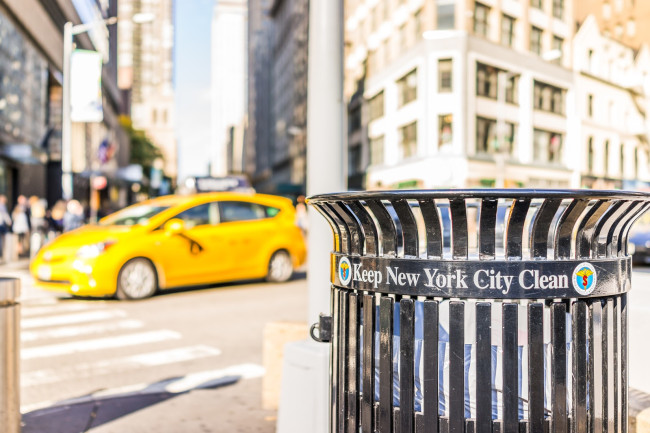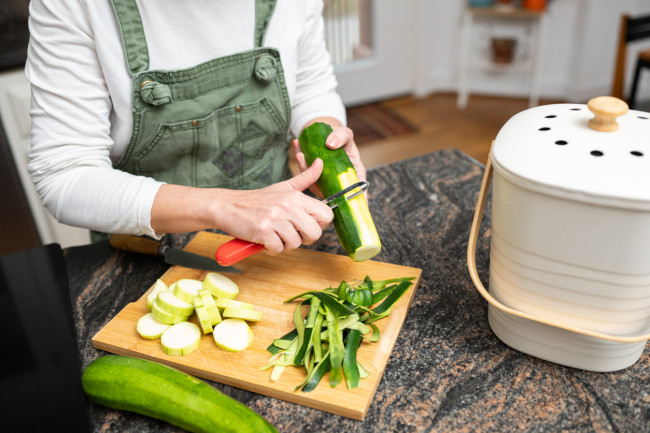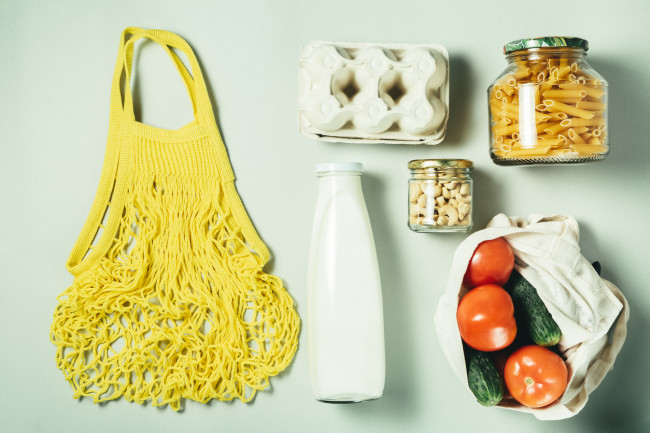Planning a NYC kitchen renovation? Don’t forget a recycling and composting center

It makes sense to plan a recycling/composting station as part of your New York City kitchen renovation. Here are some ideas and inspiration.
iStock
If you are on the verge of renovating your New York City kitchen, it makes sense to incorporate a recycling and composting system into your design—all those bottles and cans can accumulate quickly, and the bins can be bulky and unsightly. Creating a system that's easy to use and attractive also makes recycling and composting less of a chore.
Recycling is the law in New York City—plus it's one of the easiest ways to do your part in saving the planet. You'll want to have space for at least two large bins, one for paper and cardboard, and another for metal, glass, plastic, and cartons. Here’s a nifty reminder of what you can and cannot recycle that you can post near the bins.
You may want to add another bin for plastic bags and film plastics (like dry cleaning bags, bread and cereal bags, and bubble wrap), which you can recycle at many major grocery stores and pharmacies.
More New Yorkers are composting too, so you might consider adding another bin for vegetable cuttings. If your building is part of the city’s program, you can drop off food scraps at one of the many sites across the five boroughs, including at greenmarkets or through organizations such as Common Ground or GrowNYC. Or you can set up a compost bin and create your own soil for a container garden. Bonus: You'll have a lot less trash to haul to the curb.
Here are some space-saving and stylish options to work into your kitchen upgrade.
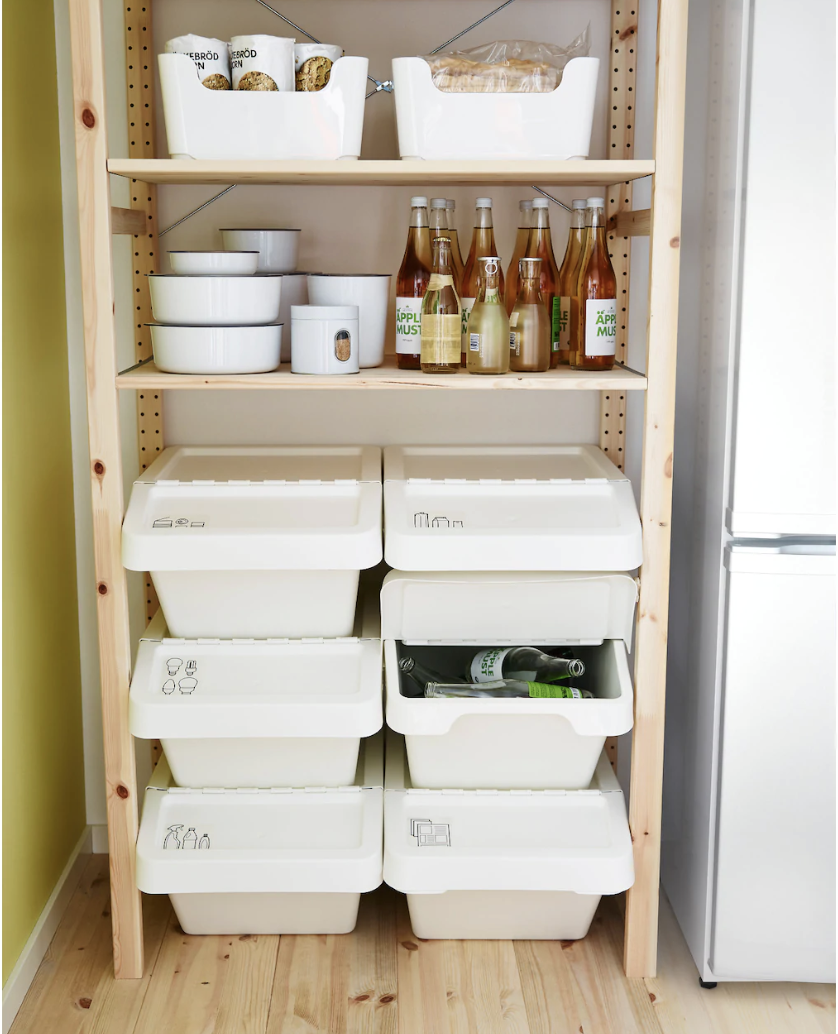
How to create a recycling station
Most New Yorkers don't have a lot of space in the kitchen for a recycling center. Jeff Streich, founder of design-build firm Prime Renovations, got creative for one client on East 10th St. in Manhattan: He retrofitted a closet to house two pull-out drawers with sorting baskets.
For a similar solution, you can stack multiple IKEA SORTERA bins ($10 for 10 gallon, $13 for 16 gallon) in a pantry or simple shelving unit (like the IVAR line shown above).
Amy Green, founder of architecture and interior design firm Amy Green Designs, regularly recommends creating a trash and recycling "station" in a cabinet with pull-out systems.
There are lots of options to choose from, including these from European-based Vauth-Segel (widely available in the U.S.).
The Rev-A-Shelf Stainless Steel Recycling system ($220 sale price from Wayfair) includes multiple configurations and sizes with metal lid.
Or the Rev-A-Shelf Recyling Center ($272 from Houzz) has multi-colored angled bins for easier sorting.
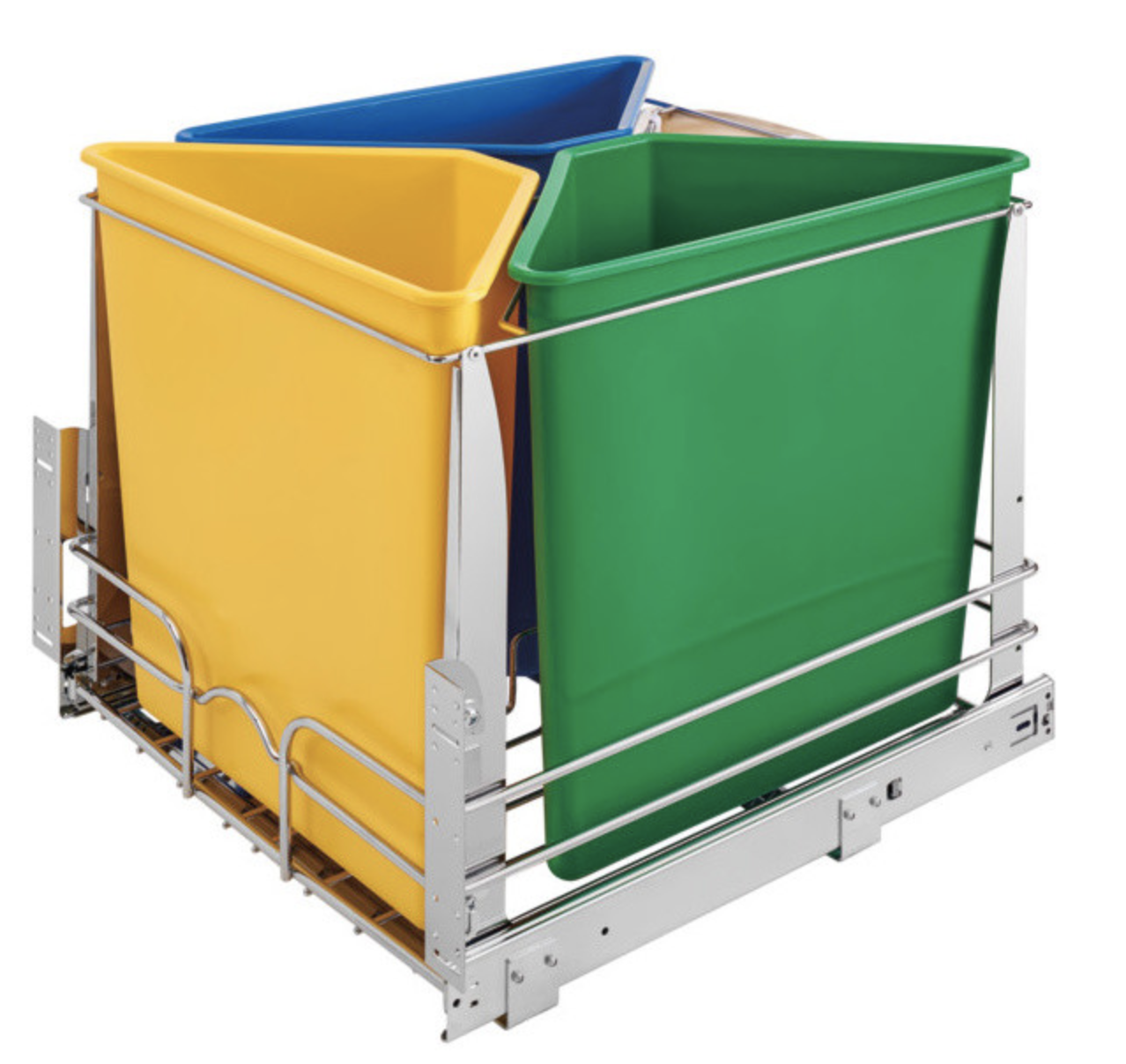
IKEA offers base and under-sink cabinets (ranging from $180 to $429) with pull-outs for recycling bins. You can also find add-ons that work with IKEA and other cabinetry.
The HÅLLBAR Recycling solution is a pull-out frame with bin that can be mounted inside your cabinet.
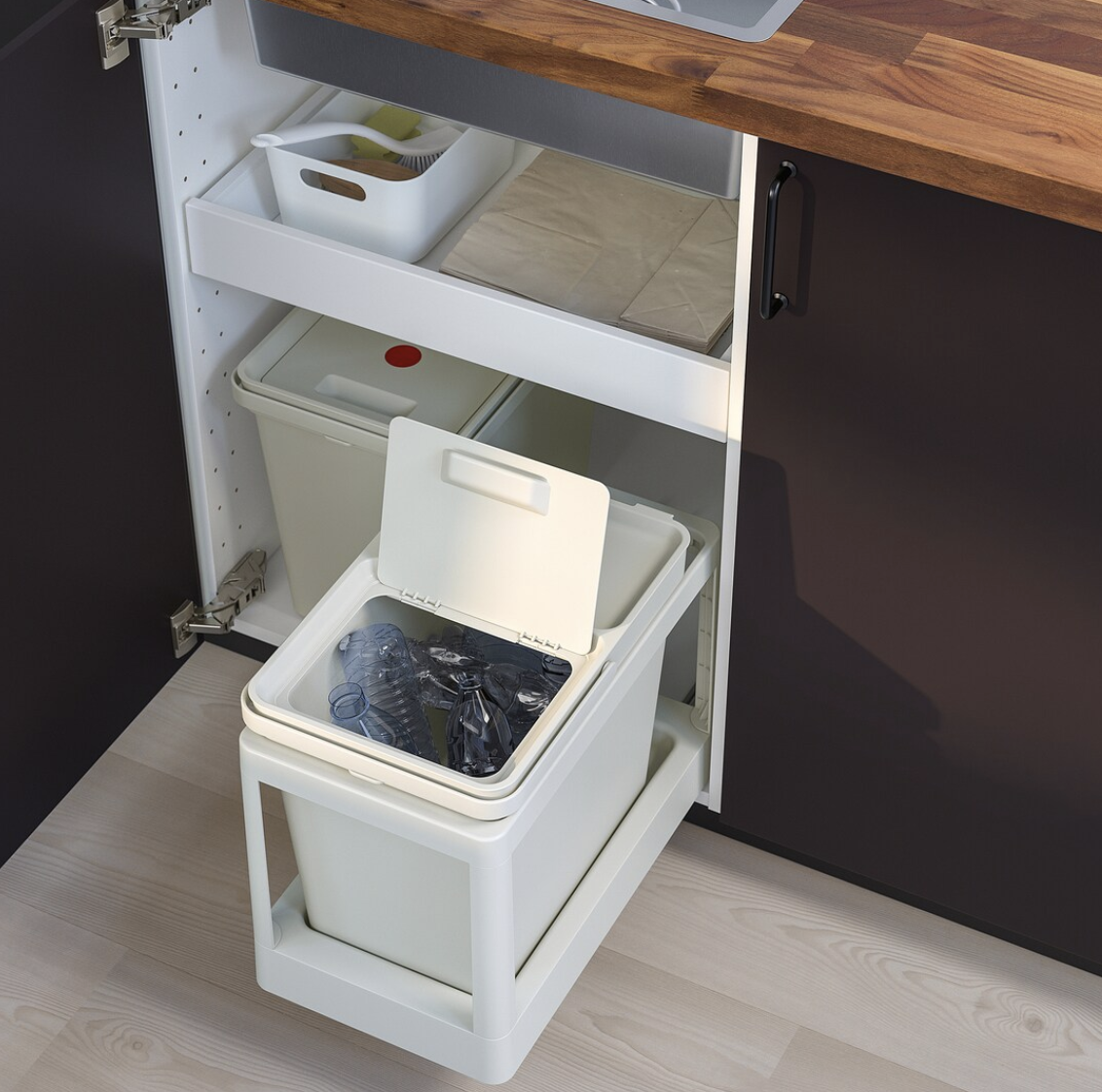
Not all NYC kitchens can spare a cabinet. In that case, Brabantia Sort & Go Recycling Bins ($20 to $27 each) can be mounted on a wall to also keep floors and counters free. Compostable liners are sold separately.
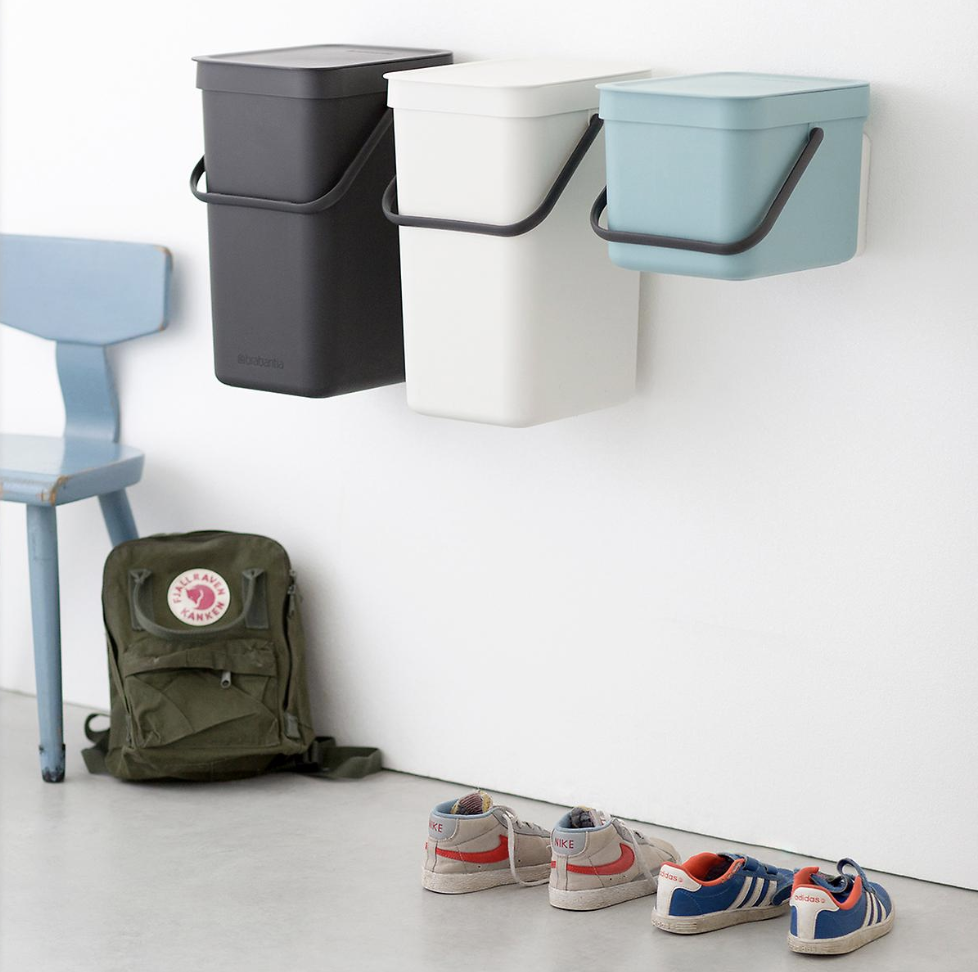
How to incorporate composting into your recycling center
Green recently picked out this foldable/movable compost bin on a current renovation. She likes how you can hang it temporarily near your countertop or island whenever you are prepping meals, then fold it up and tuck away under the sink or elsewhere.
She has also put compost "chutes" or holes into countertops, which hide the bin below and "make it easy to sweep away scraps as you go."
Besides custom chutes, here are two ready-made products to try:
The Blanco Solon Compost System is made of recycled stainless steel and is dishwasher safe.
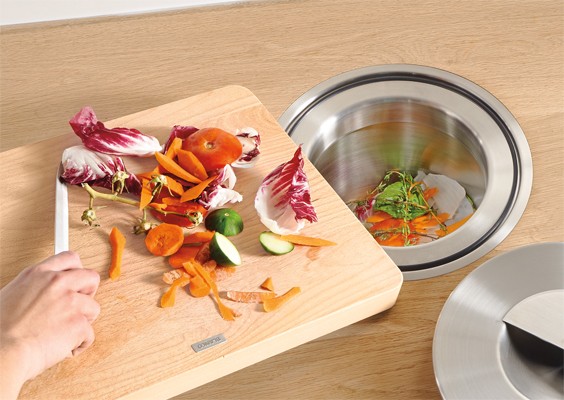

If cutting a hole in your counter is not an option, consider these sleek compost containers.
Noaway Countertop Wood Compost Bin ($145 to $175 on Food52) also comes in a petite size for the smallest of kitchens.
Bamboozle Compost Bin ($42 from Anthropologie) is made of biodegradable bamboo and includes an odorizing carbon filter and convenient handle.
Easy Clean Compost Bin ($30 from OXO) is dishwasher-safe and is designed to keep the liners tucked inside.
For serious composters, the FoodCycler ($399 but now on sale for $299) reduces scraps by up to 90 percent in as little as three hours—ideal for working into your own houseplants or private garden.



















